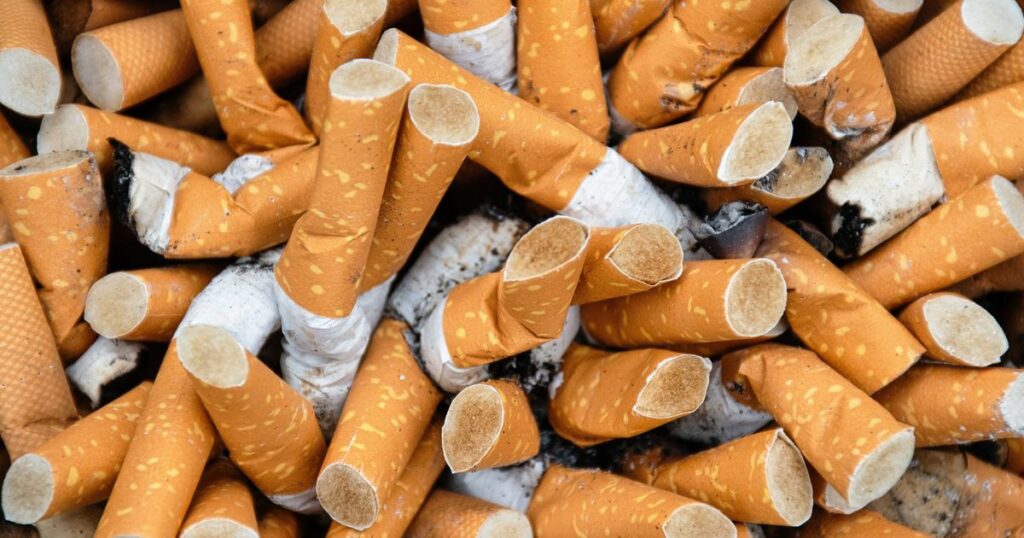Julien Fourniol/Baloulumix via Getty Images
ENVIRONMENT – In addition to its impact on public health, the tobacco industry is also the cause of considerable environmental damage, the World Health Organization (WHO) warned on Tuesday.
Between mountains of pollution and greenhouse gas emissions contributing to climate change, the tobacco industry is « one of the biggest polluters we know », explained to AFP the director of the WHO for the health promotion, Rüdiger Krech, presenting a report with “rather disastrous” conclusions.
The document, titled Tobacco, poison for our planet, looks at the environmental footprint of the sector as a whole, from growing plants to manufacturing tobacco products, including consumption and waste. While the industry is responsible for the loss of 600 million trees, tobacco farming uses 200,000 hectares of land and 22 billion tonnes of water each year, and emits around 84 million tonnes of CO2, according to the report. .
WHO wants to ban filters
A significant share of global greenhouse gas emissions also comes from the processing and transportation of tobacco – the equivalent of one-fifth of the carbon footprint of air travel.
The WHO also warns about tobacco-derived products – cigarettes, smokeless tobacco and e-cigarettes – which contribute significantly to the accumulation of plastic pollution in the world.
Cigarette filters contain traces of micro-plastics, these small fragments found in oceans around the world, including at the bottom of the Mariana Trench, the deepest in the world – making it the second largest source of pollution plastic in the world. Contrary to what the tobacco industry claims, there is however no evidence that these filters have a beneficial effect on health, underlines the WHO. The UN agency therefore urges policymakers around the world to treat these filters as single-use plastics, and to consider banning them.
The agency also laments that the gigantic costs of cleaning up tobacco industry waste are borne by taxpayers around the world. According to the report, China spends about $2.6 billion annually to treat waste from tobacco products. For India, the bill amounts to 766 million dollars, while Brazil and Germany must pay 200 million dollars each.
4500 billion cigarette butts per year
“Tobacco products, which are the most frequently thrown away litter on the planet, contain more than 7000 chemical compounds which, once thrown away, spread into the environment”, continues Rüdiger Krech. Each of the 4.5 trillion cigarette butts that end up in nature every year can pollute up to 100 liters of water, he points out.
According to the report, tobacco is often grown in rather poor countries, where water and cultivated land are often scarce, and where these crops take the place of crucial food production. Tobacco cultivation is also responsible for about 5% of deforestation worldwide, and contributes to the depletion of precious water reserves.
The WHO is therefore insisting that more countries follow the example of France and Spain by adopting the polluter pays principle. For Rüdiger Krech, it is important that “industry really pays for the damage it is creating.”
See also on The HuffPost: Coronavirus: “Tobacco kills” reminds Olivier Véran after the release of a study on nicotine


